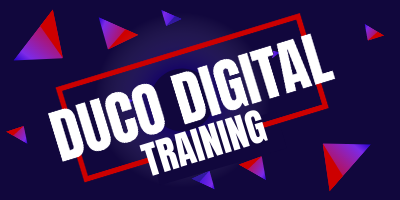How to Approach Changing Careers in 2025: A Practical Guide for Bold Moves
Dec 16
Changing careers can be a daunting yet exciting prospect, and in 2025, the landscape is richer with opportunities than ever before. Whether you're seeking more job satisfaction, better pay, or a completely new challenge, this guide will help you navigate your career change with confidence and clarity.
1. Assess Your Why
Before you dive in, take a step back and assess why you want to change careers. Are you seeking a better work-life balance, aligning with your passions, or responding to shifts in your industry? Understanding your motivations will keep you focused and guide your decision-making.
2. Research Emerging Trends
The job market in 2025 is heavily influenced by technology, sustainability, and global collaboration. Industries like Artificial Intelligence (AI), green energy, and health tech are booming, while traditional sectors are rapidly evolving. Explore how your existing skills can align with these trends or identify areas where upskilling is needed.
3. Audit Your Transferable Skills
You likely have a wealth of skills that are applicable in multiple industries. Critical thinking, problem-solving, project management, and communication are just a few examples. Use tools like LinkedIn’s Skills Assessment or even career coaching to map out how your current abilities match up with your desired field.
4. Upskill Smartly
Employers are increasingly valuing lifelong learning. Consider taking short online courses or attending workshops in areas like data analysis, digital marketing, or AI literacy. Platforms like Duco Digital Training, for example, offer a variety of courses designed to help you pivot with confidence.
5. Network with Purpose
Networking isn’t just about attending events; it’s about building genuine connections. Reach out to industry professionals on LinkedIn, attend local meetups, or join online forums. Many people are willing to share advice and even recommend opportunities when approached authentically.
6. Tailor Your CV and Online Presence
Your CV should highlight the skills and experiences most relevant to your new career. Don’t be afraid to get creative—include personal projects or voluntary roles that demonstrate your enthusiasm for the field. Similarly, update your LinkedIn profile to reflect your career goals and show recruiters you’re ready for the leap.
7. Be Open to Entry-Level Roles or Lateral Moves
Sometimes, stepping into a new industry means starting a little lower on the ladder. That’s okay—it’s part of the journey. A lateral move within your current company or sector can also provide valuable experience without the financial risk of a full career reset.
8. Leverage AI and Digital Tools
In 2025, AI tools like ChatGPT, resume scanners, and job-matching platforms can significantly streamline your career change. Use them to draft CVs, prepare for interviews, and identify opportunities that align with your skills and goals. Just remember to personalise the outputs to reflect you.
9. Prepare for the Emotional Journey
Changing careers can be stressful, especially if you’re stepping into the unknown. It’s natural to feel a mix of excitement, fear, and doubt. Build a support system of friends, family, and mentors who can encourage you when challenges arise.
10. Stay Flexible and Persistent
Not every application will result in an interview, and not every interview will lead to an offer. That’s part of the process. Stay flexible, refine your approach as you go, and celebrate small wins along the way.
Ready for Your Next Chapter?
Changing careers in 2025 isn’t just a possibility—it’s an opportunity to reimagine your professional life and take charge of your future. With the right planning, mindset, and resources, your next career move could be your best yet.
If you found this blog post helpful, take a look at our recent video about finding a job, which is packed full of tips and advice.
Are you thinking about changing careers? Check out our courses designed for career-changers, available now on Duco Digital Training.
Are you thinking about changing careers? Check out our courses designed for career-changers, available now on Duco Digital Training.

Empowering professionals globally with technical skills,
ethics and knowledge to build careers today and for the future.
Pay Today or Spread the Cost

Career Pathways
Company
Partnerships
© 2026 Duco Digital LTD.
Registered in England 11214938.
VAT number 371532213.
